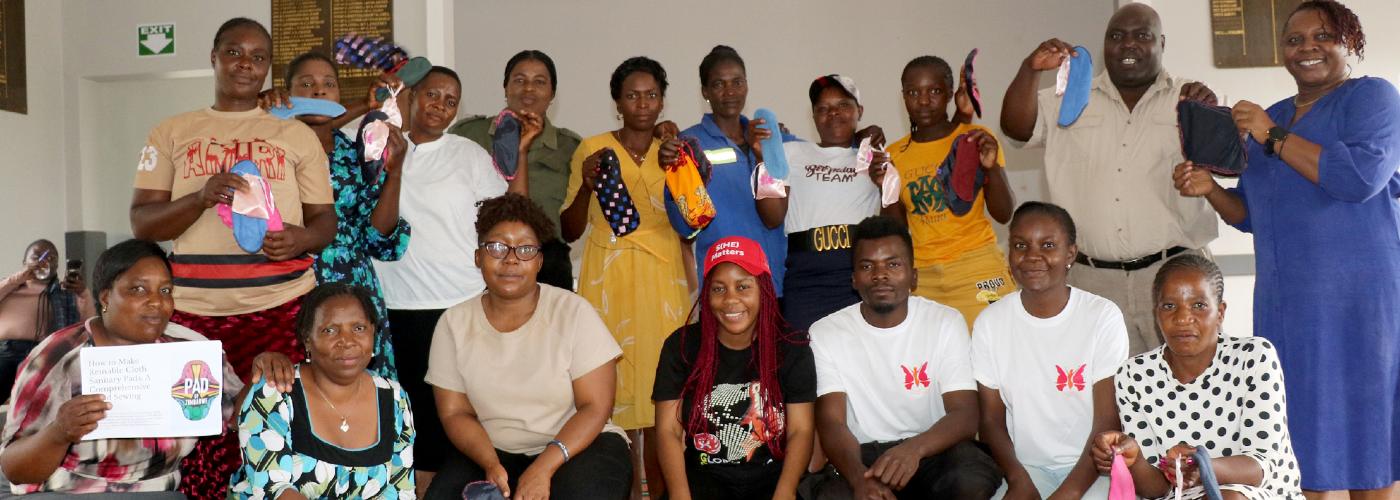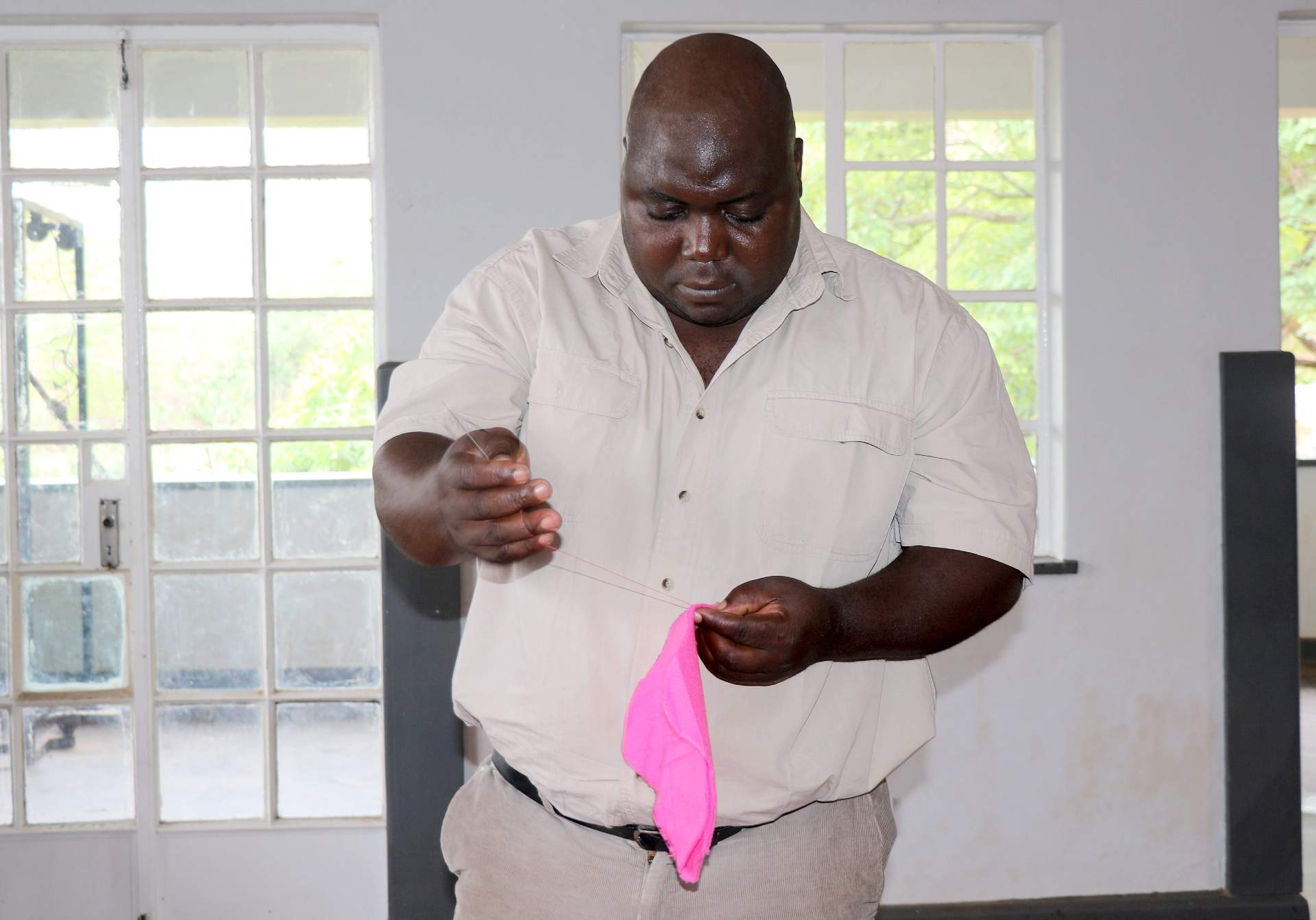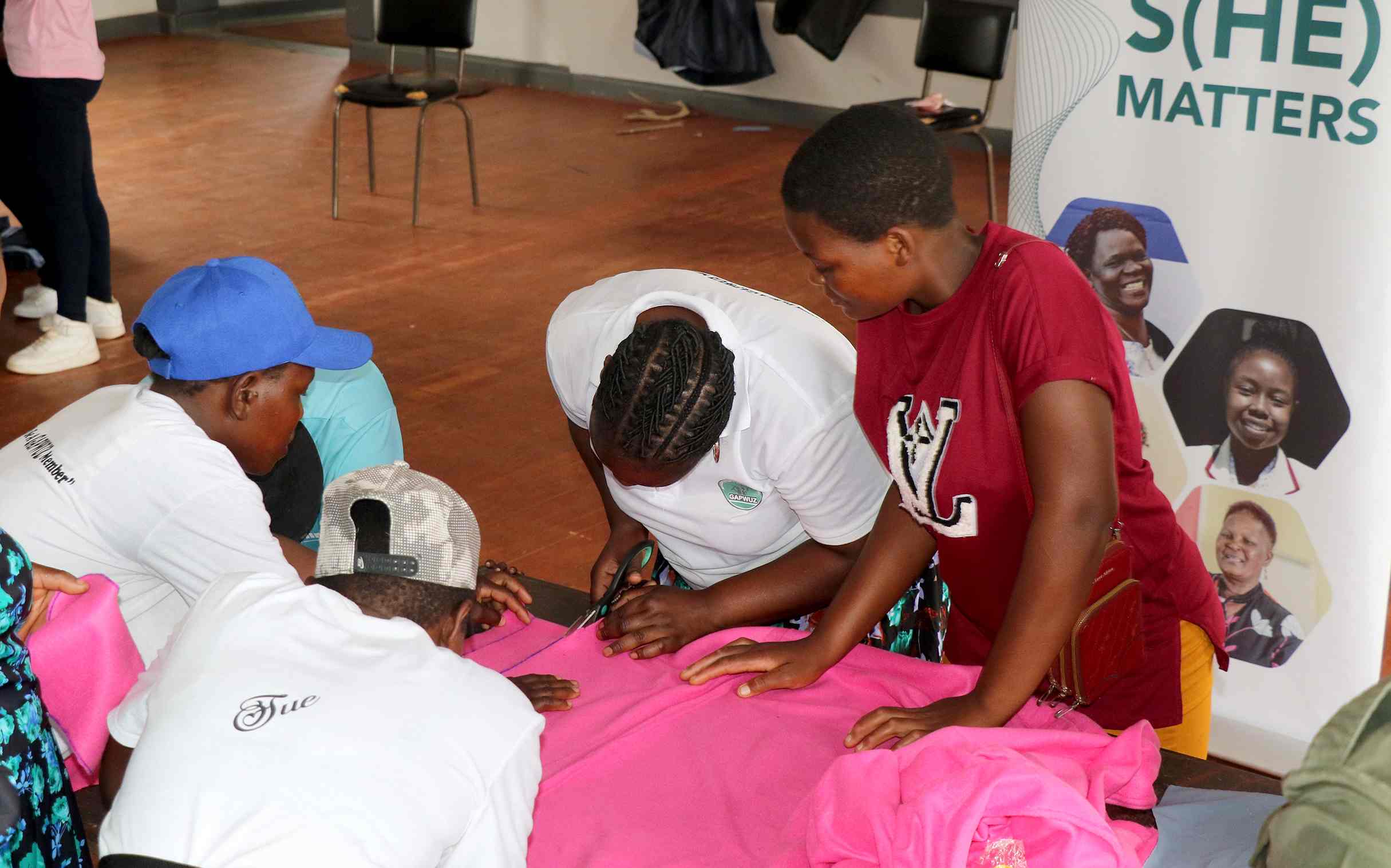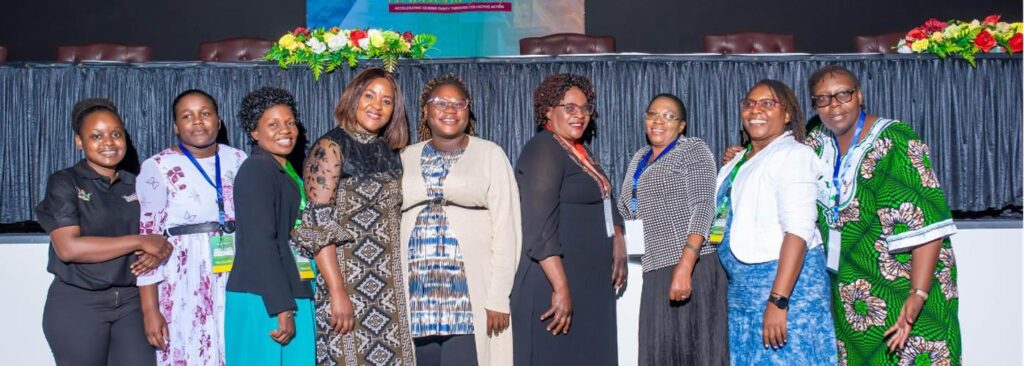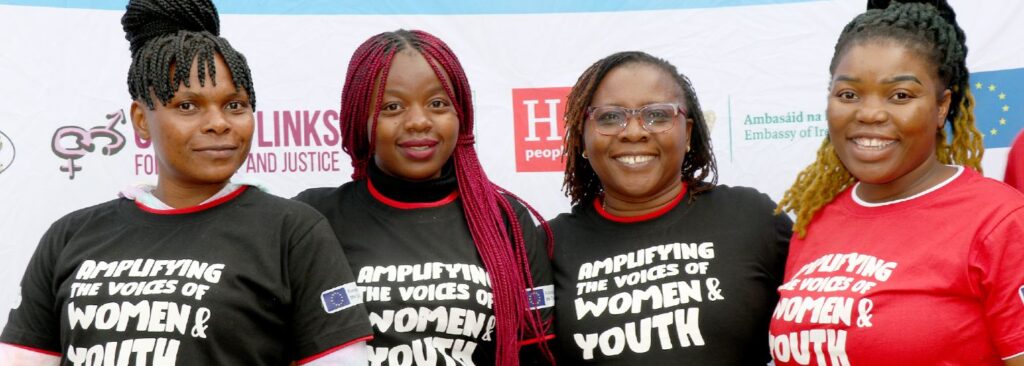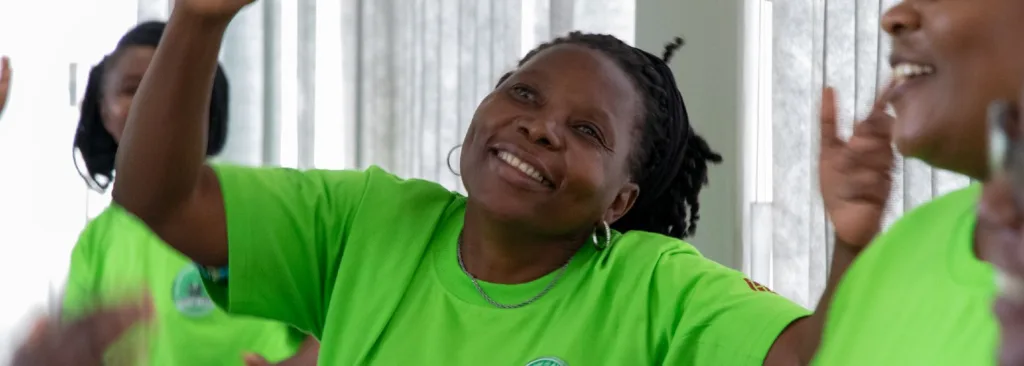To observe this year’s International Day of Rural Women, our S(HE) Matters project hosted a sanitary pad-making workshop for 40 farm workers in Mazowe District, Zimbabwe, in partnership with the General Agriculture and Plantation Workers’ Union of Zimbabwe (GAPWUZ) facilitated by Pad Up Zimbabwe. Besides helping reduce period poverty, the workshop aimed at improving menstrual hygiene management and expanding women’s economic opportunities.
Period poverty is the lack of access to menstrual products, sanitary facilities, waste management, and education. This can lead to significant health, social, and economic consequences for women and girls.
According to a ZIMSTAT report, women make up 52% of Zimbabwe’s population, and 70% of them live in rural areas. Our S(HE) Matters project specifically supports women who work on farms in rural areas across the country.
The impact of menstruation on women’s lives
Despite efforts to advance women’s rights, women and girls still face many barriers due to something as natural as menstruation. The lack of proper sanitary facilities for women farm workers and of affordable hygiene products, affects multiple aspects of their lives: health, ability to access employment, overall safety, productivity, and quality of life.
Tambudzai Madzimure, program manager of S(HE) Matters, said that “period poverty remains one of the project’s biggest challenges in achieving better working conditions for women farm workers. Because without menstrual hygiene products, they often just stay at home during their periods. So far, efforts to collect and distribute sanitary wear haven’t been enough. So the pad-making workshop addresses this basic need of the women. If women farm workers can make their own pads and teach others how, more women will feel in control of this monthly event in their lives.”
Transformative lessons
The pad-making training equipped farm workers with the skills to make reusable menstrual pads that can last three to five years. This sustainable approach offers an effective way to manage their periods. Reusable cloth sanitary pads serve as an eco-friendly alternative to disposable products, minimizing environmental impact and reducing long-term costs.
By making their own pads, women gain control over materials, absorbency, and fit, ensuring comfort and reliability during their menstrual cycle – especially important for those women who spend long hours in the field with limited access to sanitary facilities.
Mr Howa Howa, GAPWUZ field coordinator and one of the male voices supporting the movement in Mazowe, emphasized the empowerment these pad-making skills bring to women. “Menstruation is a natural part of a woman’s life, but for many rural women, it can be a source of shame and embarrassment due to lack of proper sanitary products. Training women in our district to make their own reusable pads enables them to take control of their bodies and their lives – a very positive change in the lives of the young girls and women in Mazowe,” he said.
Towards economic empowerment
The S(HE) Matters pad-making workshop also aligned closely with Sustainable Development Goal SDG 3 by promoting women’s economic empowerment. Trainees not only learned to make reusable pads for personal use, which gives them greater freedom to pursue education and employment, but they can now also sell some of the pads they make.
Winnet Njanji, a young woman from Mazowe who participated in the pad making workshop, pointed out that “Today I learned how to make reusable pads, a skill I will carry for the rest of my life. I no longer worry about my next pack of pads. I can now make my own pads and even start a business selling reusable pads,” she said.
For many women, especially in rural areas, disposable sanitary products are much too expensive. But reusable pads are an affordable alternative. “This training empowered women with new skills that enhance their self-sufficiency, allowing them to turn this skill into a small business and create an additional income stream for their families. Also, reusable pads are made from biodegradable materials, reducing waste and promoting sustainability,” explained Ndaizivei Kamoto, the Information & Project Coordinator at GAPWUZ.
Brightening girls’ futures
Together with our partners we continue to strive for a future where all women and girls can manage their periods free from stigma and financial strain. The skills gained in this workshop are not just about making pads; they represent a step towards better health and economic empowerment for women in Mazowe District and beyond.

